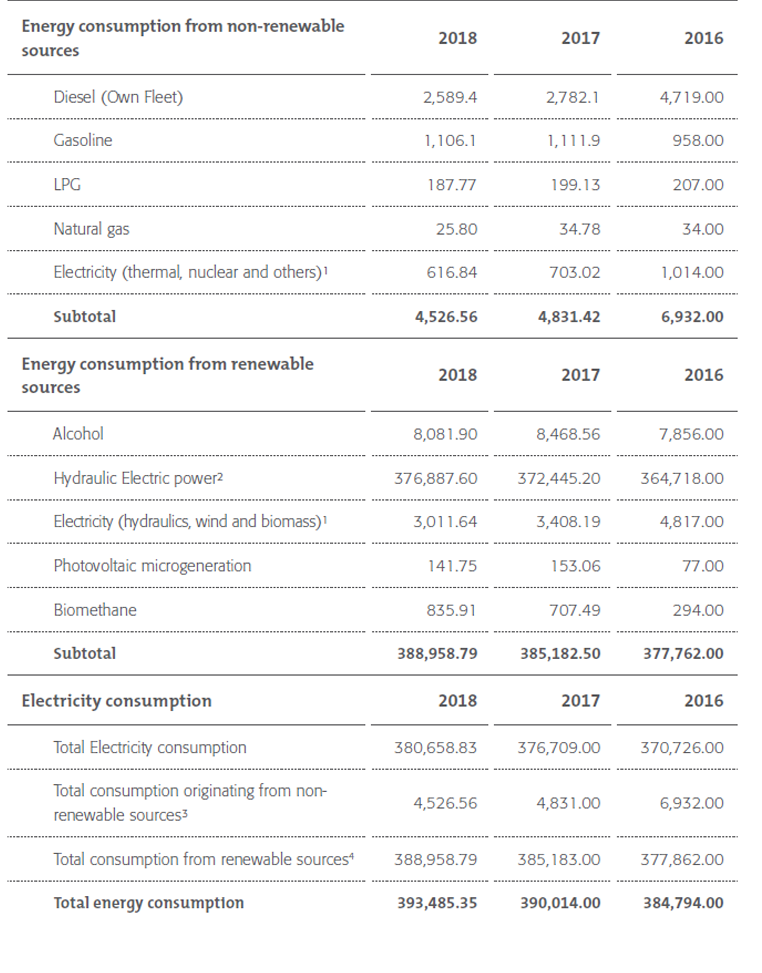[103-2, 103-3, 302-1, 302-4]
The 2018 data, presented in the table on page 67, reveal a small reduction in the consumption of diesel and alcohol in relation to 2017. Gasoline consumption has been stable. The variations followed the stimulus of rationalization and preference for renewable sources and the expansion of this type of fleet.
The Biomethane-powered cars traveled about 225,000 kilometers, equivalent to five laps on planet Earth, and avoided the emission of 298.30 tons of carbon dioxide (CO2), saving about 25,500 liters of ethanol.
To track the electricity consumption of the Office of the Executive Center (Foz do Iguaçu), the company established the Energy Performance Indicator (FDI). The result in 2018 was 382,958 kWh, within the established target (397,979 kWh).
Despite the reduction in that office, there was a slight increase in total energy consumption, considering all sources, from 390,014 GJ in 2017 to 393,485.35 GJ, but below that recorded in previous years. The analysis of these data indicates a positive result of efforts to rationalize consumption and preference for renewable sources, including expanding the fleet of vehicles that use this type of energy. [302-4]
Energy consumption-GJ
[302-1]
¹values reported from the electricity consumption of the concessionaire of Paraná, by the electric vehicles of the fleet.
²the electricity generated and consumed in the plant is measured by equipment installed in the main tables that feed the auxiliary services of the plant at 50Hz and 60Hz.
³Diesel (own fleet), gasoline, cooking gas (LPG), natural gas, electricity (thermal, nuclear and others).
4 ethanol, photovoltaic microgeneration, biomethane, electric power (electric power generated and consumed by Itaipu itself on the premises of the plant) and electricity (hydraulic, wind and biomass from energy acquired by Itaipu de Concessionaires of the electrical system to supply the offices located outside the plant area in Foz do Iguaçu and Curitiba). The amounts reported for each source consider the percentage of participation in the Brazilian energy matrix according to reports from the National Electricity Agency-Aneel.


 Português
Português
 Español
Español
